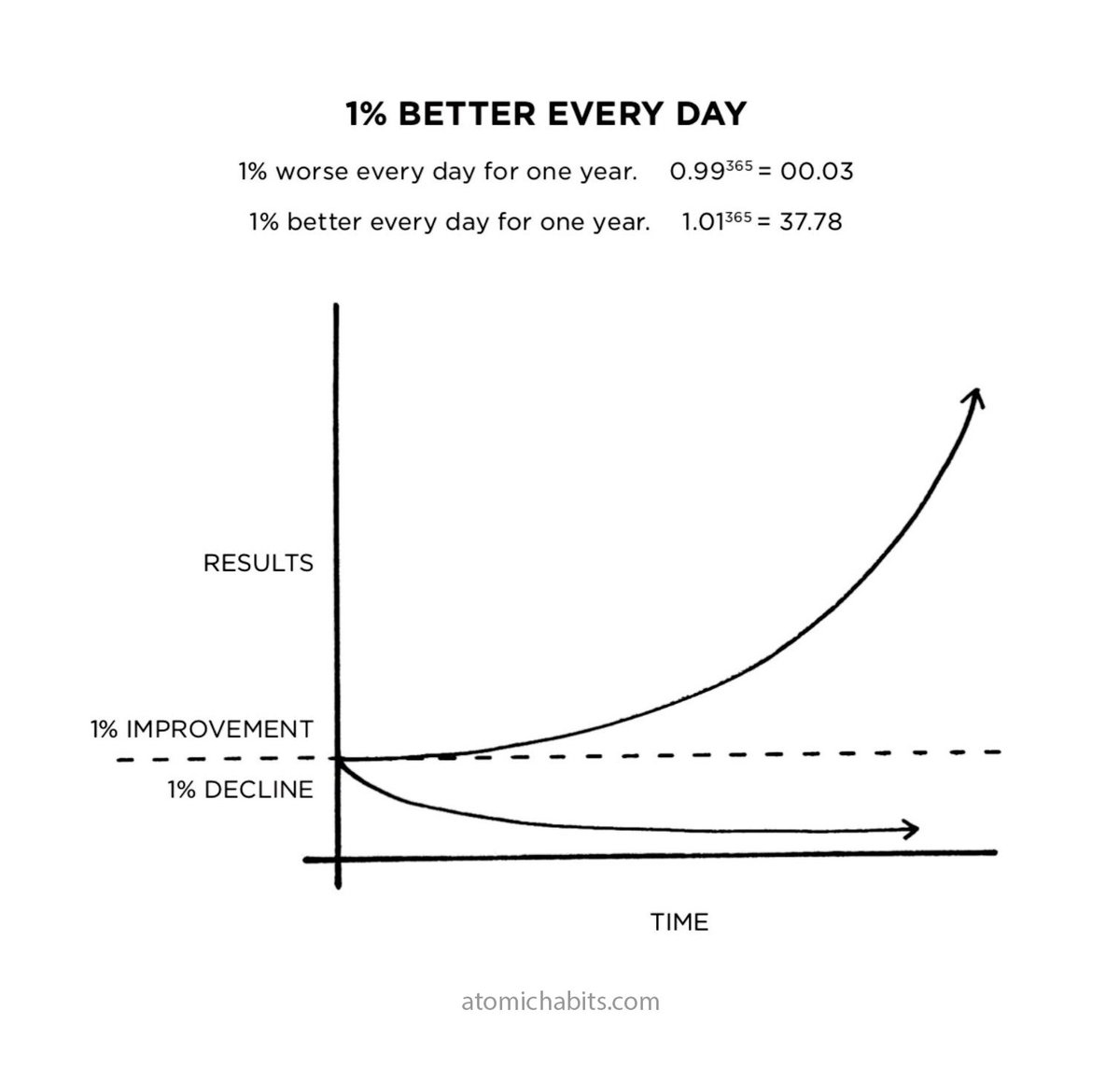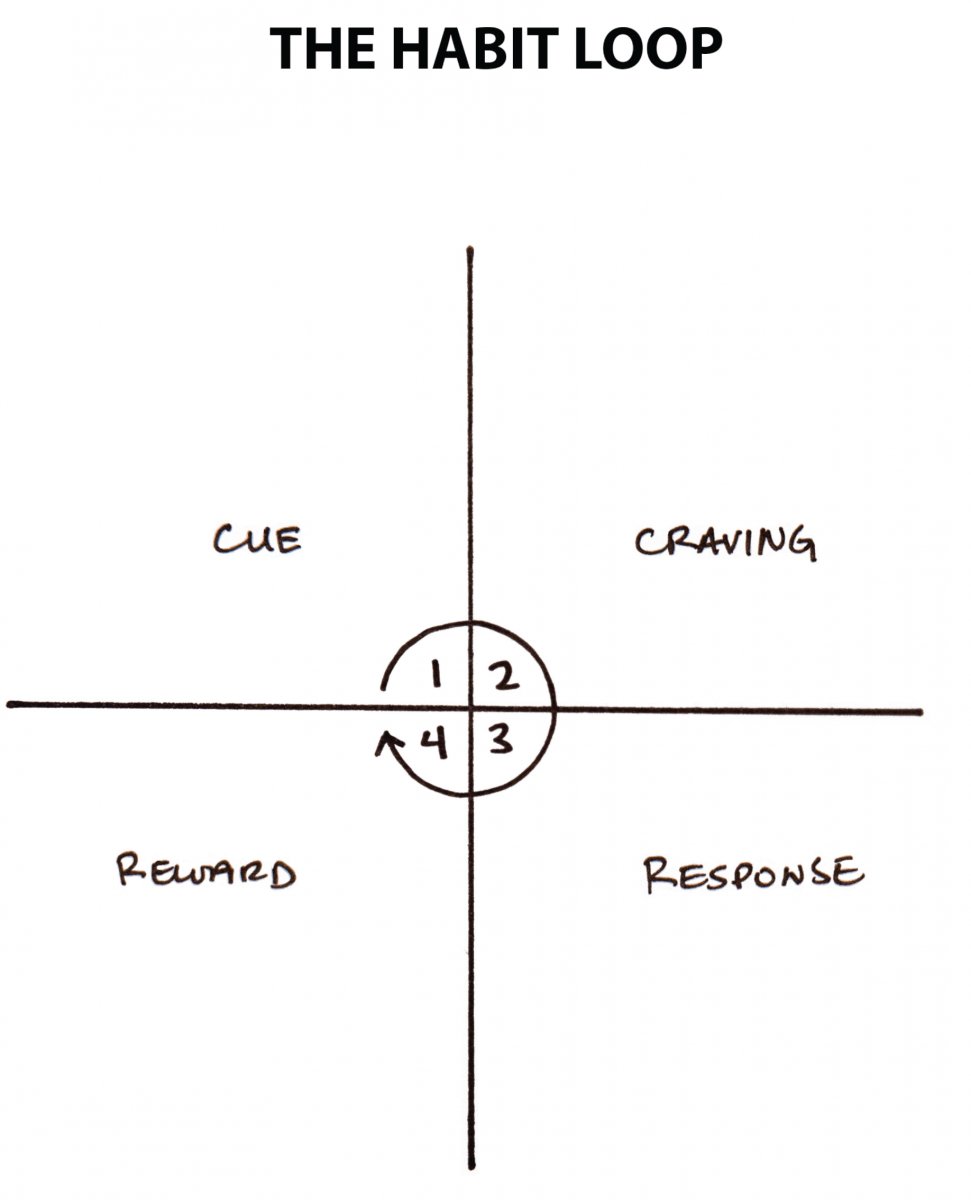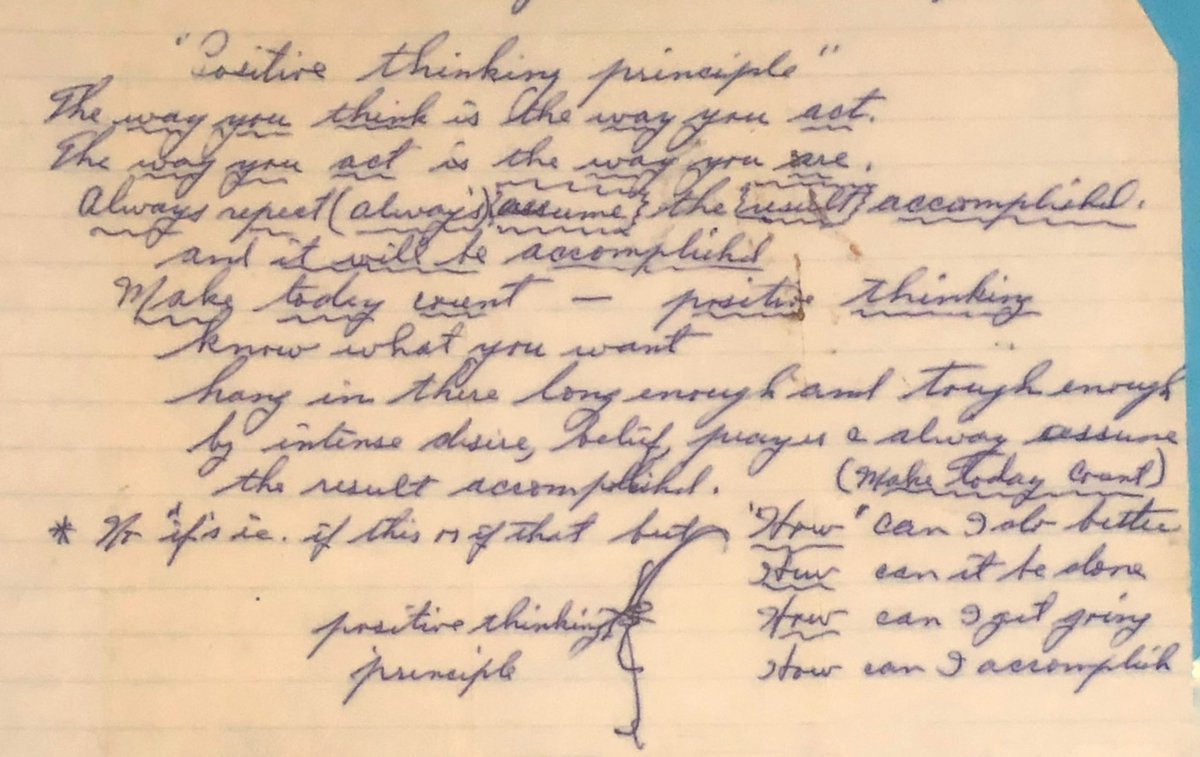(Thread)
I spent the last 6 years researching, writing, and thinking about habits. The culmination of this work was my recent book, Atomic Habits. (Now a NY Times best seller!)
In this thread, I'll share tweets from myself and others that illustrate some key lessons I learned.
I spent the last 6 years researching, writing, and thinking about habits. The culmination of this work was my recent book, Atomic Habits. (Now a NY Times best seller!)
In this thread, I'll share tweets from myself and others that illustrate some key lessons I learned.
Habits are the compound interest of self-improvement. They don't seem like much on any given day, but over the months and years their effects can accumulate to an incredible degree. 

Good habits are the foundation of health.
Good habits are the foundation of knowledge.
https://twitter.com/pat_stedman/status/1052420613984440323
Good habits are the foundation of productivity.
https://twitter.com/mmay3r/status/983837519274889216
Habits are the foundation of nearly everything.
https://twitter.com/Nappyb0yy/status/1051447458667081728
With good habits, life can be easy. Without good habits, life is nearly always a struggle.
https://twitter.com/mikepjb/status/1051139397914161154?s=21
Despite their power, habits are easy to overlook on any given day. Making a choice that is 1% better or 1% worse seems insignificant. We have trouble understanding how our daily actions compound and get disappointed when we don't enjoy linear results.
https://twitter.com/M1ichaelW/status/997878086132817920
The human mind seems to have a tendency to get emotional over every peak and valley, but the power of habits is realized in the long-run. It is a hallmark of any compounding process: the most powerful outcomes are delayed.
https://twitter.com/scheplick/status/992406449593741313
The influence of habits becomes more apparent as you grow up and get deeper into life (into your 30s, 40s, and beyond). Suddenly, the true impact of your daily choices becomes strikingly apparent.
https://twitter.com/bwcard/status/1030226467601301504
Your habits set your trajectory in life. If you want to know where you'll end up, just follow the path your habits and see how they will compound 10 or 20 years down the line.
https://twitter.com/robertshipley2/status/1024241201283837953?s=21
Basically, your daily choices are easy to overlook early in life and then you turn around one day and...
https://twitter.com/geraldinreverse/status/1045907408474664961
This is why understanding how habits work and how to shape them to your liking is such a crucial skill. It enables you to make time your ally rather than your enemy.
https://twitter.com/wesleysnipes/status/1032059118545072128
Developing a deep understanding of the fundamentals of habits and human behavior gives you an edge at work, in relationships, when investing, and in daily life because it is one of the few, reliable factors in a rapidly changing world.
https://twitter.com/jposhaughnessy/status/1024698570321145856
When you understand how habits work, you can leverage them to your benefit.
https://twitter.com/josephmwood/status/1024025943617273857?s=21
Modern society is filled with life hacks, shortcuts, optimizations, supplements, and get-rich-quick schemes. All in an effort to achieve more. But in the long-run, mastering your habits is perhaps the most realistic and reasonable superpower in life.
https://twitter.com/naval/status/825380473853521921?s=21
Changing your habits is not merely about changing your results. It's also about changing your identity, your beliefs, your self-image.
https://twitter.com/iam_preethi/status/1023389054887317504?s=21
It’s hard to change your habits if you never change the underlying beliefs that led to your past behavior.
https://twitter.com/fchollet/status/1054238009686552579
Identity can hold you back:
- I'm terrible with directions
- I'm not a morning person
- I have a sweet tooth
- I'm bad at math
Or build you up:
- I'm the type of person who doesn't miss workouts.
- I finish what I start.
- I read every day.
- I'm a writer.
- I'm terrible with directions
- I'm not a morning person
- I have a sweet tooth
- I'm bad at math
Or build you up:
- I'm the type of person who doesn't miss workouts.
- I finish what I start.
- I read every day.
- I'm a writer.
True behavior change is identity change. When your behavior and your identity are fully aligned, you are no longer pursuing behavior change. You are simply acting like the type of person you already believe yourself to be.
In Chapter 2, I refer to this strategy as "identity-based habits." Start with the type of person you want to become and then build small habits that reinforce that identity.
https://twitter.com/devonzuegel/status/1027668767390687234?s=21
The Habit Loop
To better understand how a habit works and how to improve it, let's divide a habit into four stages.
1. Cue
2. Craving
3. Response
4. Reward
These four stages create a feedback loop. Your mind is endlessly running this loop and learning from its experiences.
To better understand how a habit works and how to improve it, let's divide a habit into four stages.
1. Cue
2. Craving
3. Response
4. Reward
These four stages create a feedback loop. Your mind is endlessly running this loop and learning from its experiences.

I don't have space or time to break down all the details of this loop and how to use them to build good habits and break bad ones (that's what the book is for), but I will highlight a few interesting areas.
Stage 1: Cue
Your brain remembers the past so that it can better predict the future. One of the key ways it remembers is by associating cues in the external environment with past experiences.
Your brain remembers the past so that it can better predict the future. One of the key ways it remembers is by associating cues in the external environment with past experiences.
https://twitter.com/then_there_was/status/1054138110655705088?s=21
As a result, the physical environment plays an important role in prompting your habits. As I write in the book, "Environment is the invisible hand that shapes human behavior."
Change your environment and you can often change your habits.
Change your environment and you can often change your habits.
This is why it is often hard to stick with habits when you are traveling. You are suddenly in a context devoid of all the cues that your habits and memories were tied to.
https://twitter.com/douglas9162/status/1014977906487857153?s=21
You can use a similar approach to take control of your habits at home.
Want to watch less TV? Remove the TV from your bedroom.
Want to spend less money on electronics? Stop following unboxing videos and tech reviews on YouTube.
Reduce exposure to the cues of bad habits.
Want to watch less TV? Remove the TV from your bedroom.
Want to spend less money on electronics? Stop following unboxing videos and tech reviews on YouTube.
Reduce exposure to the cues of bad habits.
Stage 2: Craving
The second stage of the habit loop is all about how you interpret the cue. It's about the prediction you make and the meaning you assign to the cues in your life.
Make a different prediction and you'll take a different response.
The second stage of the habit loop is all about how you interpret the cue. It's about the prediction you make and the meaning you assign to the cues in your life.
Make a different prediction and you'll take a different response.
Cravings occur because your brain holds a record of your past experiences and outcomes and then tries to map those onto your current circumstances to predict the most rewarding response.
In many cases, the most rewarding response is determined by who we are surrounded by at the time. Humans are social creatures are our desires (cravings) are heavily influenced by the opinions, praise, and respect of others.
https://twitter.com/patrick_oshag/status/1024397465892651009
Everyone is wired to care about the opinion of others because it helps us when others like us. For our ancestors, earning the respect of those around them and belonging to the tribe was often a matter a life and death.
Everyone wants to belong and you can use this inclination to help you build better habits.
One of the most effective ways to build a new habit is to join a group where your desired behavior is the normal behavior.
One of the most effective ways to build a new habit is to join a group where your desired behavior is the normal behavior.
Stage 3: Response
The third stage of the Habit Loop is when the actual behavior occurs. The crucial consideration at this stage is this: "How easy is the behavior?"
The third stage of the Habit Loop is when the actual behavior occurs. The crucial consideration at this stage is this: "How easy is the behavior?"
Energy is precious and the human brain is wired to conserve it whenever possible. As a result, we often find ourselves sliding into the most convenient option, not necessarily the best option.
https://twitter.com/farnamstreet/status/1031226069477543937
I am reminded of what @EdLatimore wrote after getting an Amazon Fire TV Stick: "Why do people even bother trying at life when it's this easy to be entertained?"
The answer is: most of us don't. We live in a world of hyper-convenience and our behavior follows naturally.
The answer is: most of us don't. We live in a world of hyper-convenience and our behavior follows naturally.
Humans love convenience. This is one reason having a job with a short commute can lead to a surprising jump in happiness.
https://twitter.com/alexrubalcava/status/1047664649078857728
Make your habits easy. The less energy a habit requires, the more likely it is to occur. Your objective is to make it easy to do the things that pay off in the long-run.
Stage 4: Reward
Finally, there is the reward. This is the benefit or outcome of your habit. Said another way, "How does this habit serve you?"
Every habit (even a bad one) serves you in some way. Overeating eases anxiety. Smoking calms nerves. etc.
Finally, there is the reward. This is the benefit or outcome of your habit. Said another way, "How does this habit serve you?"
Every habit (even a bad one) serves you in some way. Overeating eases anxiety. Smoking calms nerves. etc.
When it comes to building good habits, it is crucial to choose a behavior that feels rewarding *in the moment.*
The feeling of a positive experience gives you a reason to repeat the behavior again the next time.
The feeling of a positive experience gives you a reason to repeat the behavior again the next time.
There are many styles of exercise, many types of books, many forms of meditation. You don't have to build the habits society says you should build. Choose the form that is most enjoyable to you.
Habits that feel good in the moment are more likely to last in the long run.
Habits that feel good in the moment are more likely to last in the long run.
What you'll often find is that by starting with the behavior you enjoy, you'll make it a habit. And once it's a habit, it will become easier to stretch into related areas.
https://twitter.com/naval/status/1002068699761659905
This thread is just a sample of what I learned and it won't make the process of building habits painless. Growth will always require discomfort, but my hope is that these ideas were useful for you.
https://twitter.com/scotthyoung/status/1047545491393847297?s=21
Finally, I must thank the people who worked on these topics before me. I cite many of them in the book (250+ endnotes), but I want to publicly acknowledge a few: Leo Babauta (@zen_habits), Charles Duhigg (@cduhigg), Nir Eyal (@nireyal), & BJ Fogg (@bjfogg) for their work. Thanks!
If you're interested in learning more, please read Atomic Habits.
It has already been named:
- New York Times best seller
- Wall Street Journal best seller
- USA Today best seller
- Top 10 on Amazon
- Top 10 on Audible
- 4.9/5 stars on Amazon
Thank you!
amazon.com/Atomic-Habits-…
It has already been named:
- New York Times best seller
- Wall Street Journal best seller
- USA Today best seller
- Top 10 on Amazon
- Top 10 on Audible
- 4.9/5 stars on Amazon
Thank you!
amazon.com/Atomic-Habits-…
• • •
Missing some Tweet in this thread? You can try to
force a refresh









